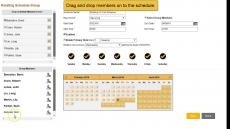|
By AlertOps
AlertOps announced its new integration with ServiceNow to enhance incident management and response capabilities for ServiceNow customers. This joint effort enables AlertOps to create better experiences and drive value for customers by providing real-time notifications, bi-directional data synchronization, and seamless integrations. ServiceNow’s expansive partner ecosystem and partner program is critical in supporting the Now Platform’s $275 billion forecasted market opportunity through 2026.
|
By AlertOps
In today’s complex IT environment, clients demand quick, reliable services. To accomplish this, businesses have begun leveraging automation solutions to reduce response times and increase reliability, enabling staff to focus on strategic initiatives that drive business growth. However, many MSPs struggle to build an effective automation strategy and need help, making it challenging to remain competitive in the modern marketplace.
|
By AlertOps
Yet, how your enterprise builds and manages its oncall schedule can impact departments and stakeholders across your organization. When it comes to oncall scheduling, your enterprise must plan as much as possible. Fortunately, with the right processes and tools, you can effectively implement and manage an oncall schedule. You can also use this schedule to quickly identify and resolve incidents and prevent them from causing long-lasting damage to your organization and its stakeholders.
|
By AlertOps
Vendor partnerships are the core of the MSP business model. These partnerships enable MSPs to offer vital services like data backups, cybersecurity, and cloud solutions to complement their offerings. These partnerships provide unique competitive differentiators that help MSPs stand out in a crowded market when well-managed. Strong vendor relationships are vital to achieving growth and establishing a solid brand presence.
|
By AlertOps
How you manage your oncall management teams can have significant ramifications on your enterprise and its stakeholders. To understand why this is the case, let’s look at what it means to be “oncall,”. Along with tips and recommendations to help your enterprise staff achieve its desired results.
|
By AlertOps
In the era of distributed workforces, the need for effective remote incident response is more critical than ever. This blog serves as a comprehensive guide for data center operations managers, offering insights and strategies to navigate incidents with precision and efficiency, regardless of the geographical location.
|
By AlertOps
In the fast-paced world of data center operations, the landscape is constantly evolving, and with the rise of remote work, the challenges and opportunities for operations managers have reached new heights. In this blog, we’ll explore the ins and outs of remote management and monitoring, providing insights and strategies to help data center operations managers navigate this dynamic terrain seamlessly.
|
By AlertOps
In the dynamic world of data center operations, preparedness is key. This blog serves as a comprehensive guide for data center operations managers, exploring the critical aspects of disaster recovery (DR) and business continuity (BC) planning. Learn how to fortify your data center against unforeseen events and ensure seamless operations even in the face of adversity.
|
By AlertOps
PagerDuty recently made changes to their pricing plans by moving rules-based noise suppression features out of their Professional Plan into the Event Intelligence add-on module. AlertOps includes rules-based noise suppression features beginning in the Premium Plan. AlertOps plans offer more competitive noise suppression features vs PagerDuty plans.
|
By AlertOps
Customers are not sure exactly which features they need to use when they sign up. After using PagerDuty, they discover they need to upgrade to another plan to get some features that they need. When compared to PagerDuty Pricing, AlertOps pricing plans are simpler and less confusing.
|
By AlertOps
Send to one user at a time, then retry 5 times at 5 minute intervals before escalating to the next user. You can change the intervals and timings.
|
By AlertOps
Notifies one device at a time for each user before escalating to the next user. Each user defines their own notification sequence in their user profile.
|
By AlertOps
This Message Rule will immediately notify all users across all devices at once.
|
By AlertOps
This guide provides best practices and practical guidelines for the management of network operations and information security incidents. Incidents happen, and cost organizations thousands of dollars due to downtime.
|
By AlertOps
Development and operations (DevOps) empowers organizations to deliver applications, products and services faster and more efficiently than ever before. The DevOps model unifies development and IT operations (ITOps) teams for more efficient achievement of your company's business objectives.
- September 2024 (1)
- June 2024 (1)
- May 2024 (3)
- January 2024 (3)
- August 2023 (2)
- June 2023 (1)
- April 2023 (1)
- March 2023 (2)
- February 2023 (1)
- October 2022 (2)
- August 2022 (1)
- July 2022 (3)
- June 2022 (1)
- May 2022 (2)
- April 2022 (1)
- February 2022 (2)
- January 2022 (3)
- December 2021 (1)
- November 2021 (1)
- October 2021 (2)
- September 2021 (1)
- August 2021 (1)
- June 2021 (2)
- May 2021 (1)
- March 2021 (3)
- February 2021 (7)
- January 2021 (5)
- December 2020 (4)
- November 2020 (2)
- October 2020 (2)
- September 2020 (1)
- August 2020 (3)
- July 2020 (3)
- May 2020 (1)
- April 2020 (2)
- March 2020 (1)
- January 2020 (1)
- August 2019 (1)
- July 2019 (4)
- May 2019 (1)
- April 2019 (1)
- December 2018 (1)
- October 2018 (1)
- September 2018 (2)
- August 2018 (1)
- July 2018 (5)
- June 2018 (1)
- May 2018 (3)
- April 2018 (1)
- February 2018 (1)
- January 2018 (1)
- December 2017 (1)
- November 2017 (1)
- September 2016 (2)
- May 2016 (3)
- July 2015 (4)
AlertOps is a collaborative incident management solution that integrates multi-modal communication, application monitoring, change management and SLAs. It helps IT Operations manage and optimize their alerts from various monitoring systems to greatly reduce Alert Fatigue and Mean Time To Resolution (MTTR).
Mobilize all your teams to take immediate and unique action, simultaneously:
- Manage Major Incidents - Together: Notify all your key teams, managers, and stakeholders, based on severity levels, schedules, skillsets and more.
- Work Fast, with Workflows: Automate your DevOps toolchain and build workflows that streamline delivery processes and improve real-time collaboration.
- Protect Customer Experiences: Escalate incidents, and keep stakeholders in the loop with uniquely relevant messages to provide excellent customer experiences.
Give your teams the un-matched power and flexibility they need to manage major incidents and protect business-critical services.















